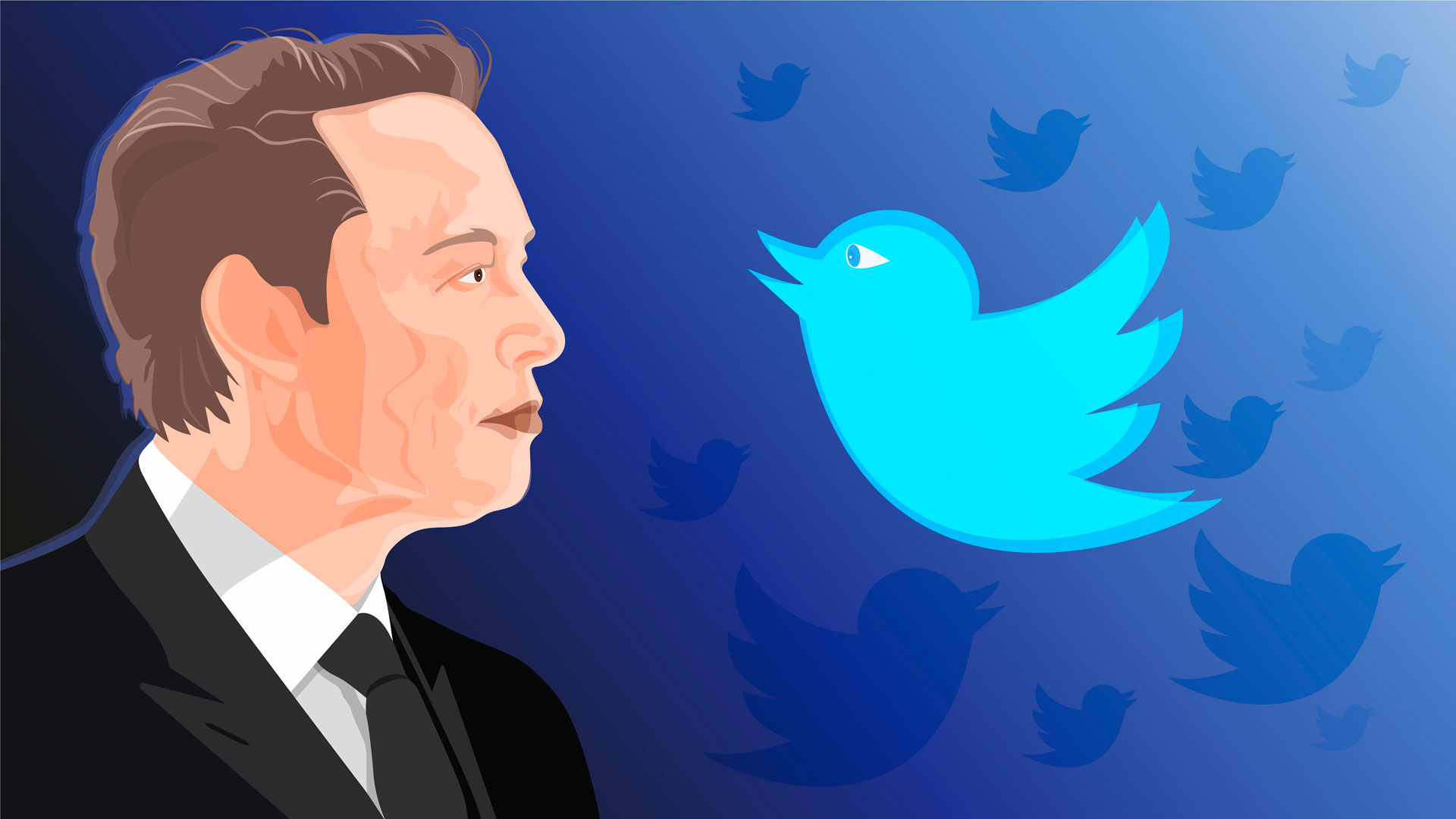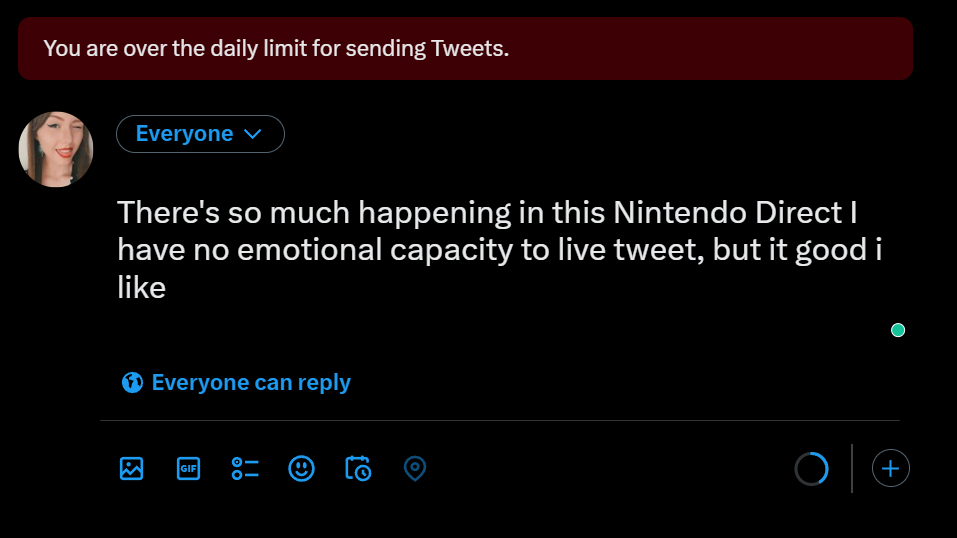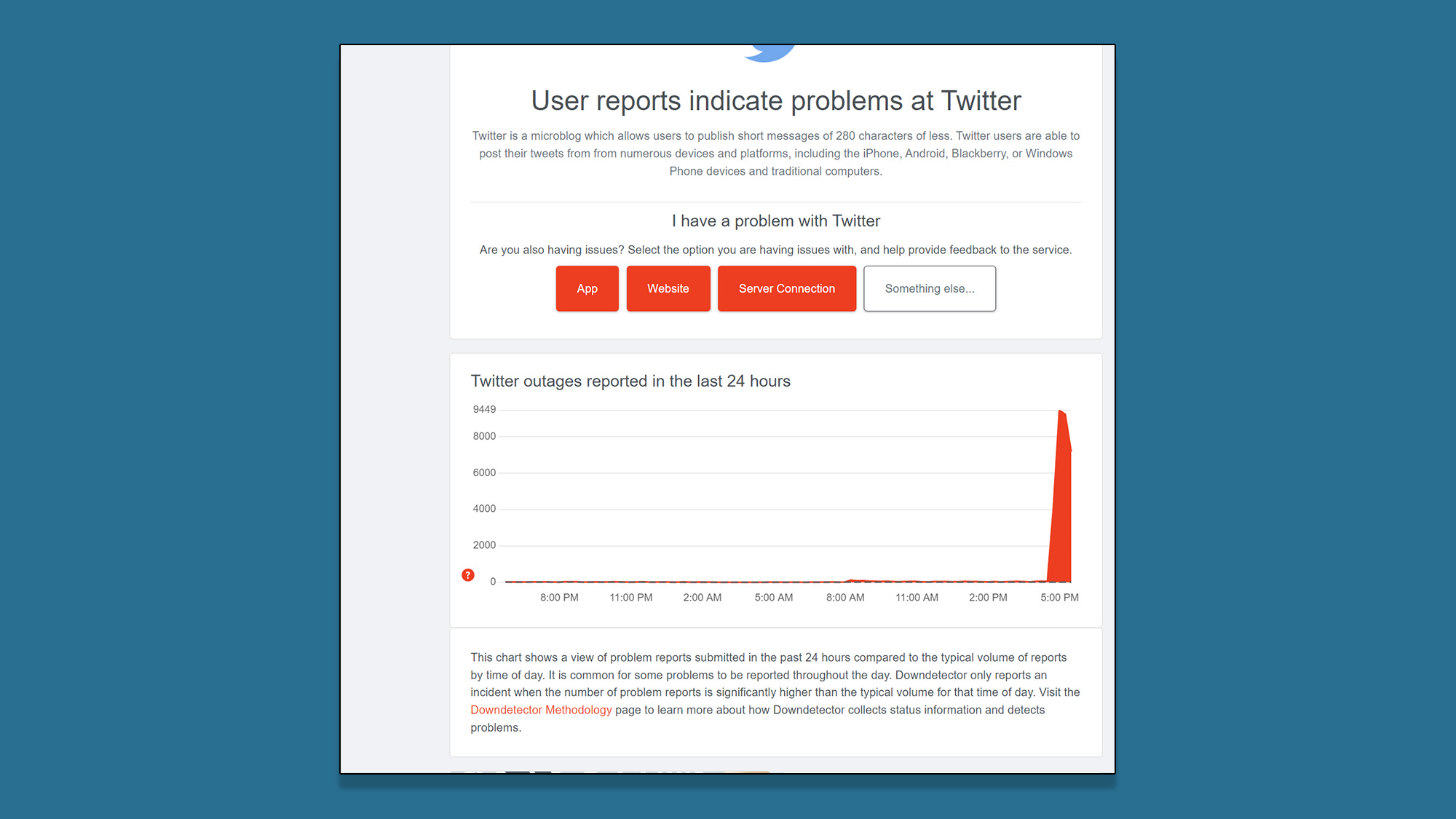Twitter's daily limit outage proved to me the platform is dying
Good news, but not for Elon

Sign up for breaking news, reviews, opinion, top tech deals, and more.
You are now subscribed
Your newsletter sign-up was successful
A recent Twitter outage on February 8 saw many users blocked from making any tweets, direct messages or new follows, with an alert that cited a “daily limit” being reached.
While it was pretty easy to bypass the error message when tweeting by scheduling a tweet one minute in the future, the issue seems to have affected the vast majority of Twitter accounts.
It appears as though the Twitter outage was related to the recent addition of an increased tweet word count, but it did see the circulation of an official Twitter page stating that all users are now limited to 2,400 tweets a day, which is a pretty generous 100 tweets per hour, 500 direct messages and 400 new follows.
For now, this is a reasonable limit, and a move made to improve the reliability of Twitter’s platform—something I can agree with. However, considering the recent changes at Twitter HQ, it wouldn’t surprise me if before long, this was shifted into a money-making opportunity. The question is, would anyone really care?
Somebody that I used to know
Twitter’s unique selling point was that it offered a globalized platform allowing users to have their own broadcasting network, creating a more informal space for brands and users alike to share thoughts. Features like the short character limit meant users needed to be pithy and effective with every word, though this always was somewhat at odds with the ability to send unlimited tweets.
Now, from the recent changes to Twitter’s API, the release of longer tweet wordcounts for Twitter Blue users, and rumors of TweetDeck moving behind a paywall to older changes such as the addition of tweet threads in 2017, a lot of what has always made Twitter unique from other platforms has been rewritten in recent years, even before the Elon Musk takeover.
The platform doesn’t look or behave the way it once did. It’s increasingly rife with toxic individuals and communities, hate-filled campaigns, and a neverending battle to elevate your voice above the noise, reasons that form part of a larger narrative behind Twitter’s decline.
Sign up for breaking news, reviews, opinion, top tech deals, and more.

Even before Musk’s buyout, according to a Reuters exclusive, Twitter’s most engaged users were on the decline since the beginning of the pandemic, and I’d certainly say that tracks with what I’ve seen within my network. A lot of users in my circles seem to be tweeting less, engaging in discourse less, and sometimes, abandoning the platform altogether. It’s still a useful source of news, albeit dwindlingly so, but the social element seems to be fading rapidly.
Implementing a harsher tweet limit would fit nicely with the “premium business case” Twitter CEO Elon Musk is going for with the membership model, so it doesn’t seem too far-fetched.
For the average user, the current limit of 2,400 tweets per day is still likely more than enough—in the four years since I rejoined the platform (my old account was unceremoniously snatched from me because I’d made it a month before I turned 15), I’ve not even made 2,400 tweets.
However, if the existing tweet limit were to reduce further down the line to, say, 240 tweets a day and unless you pay for Twitter Blue, what would that spell for the Twitter user base?
Direct messaging is an even more dire prospect. Depending on how you communicate, 500 messages a day is already pretty rough, especially for those who don't typically write in lengthy prose. With some rumors suggesting the messaging limit could be slashed by half, Twitter could be about to significantly reduce how easily users can chat—and, I expect, push them to other chat services like Messenger or WhatsApp.
Push it to the limit

Twitter’s most recent outage was mildly frustrating at worst, with many users acknowledging the inconvenience with malaise and indifference uncharacteristic of the standard tone of the platform’s user base.
This shift could be because we, as a collective, have become used to platform issues since Musk’s takeover and the subsequent shedding of two-thirds of Twitter’s workforce.
I think it runs deeper than that, though. I just think we care less and less about Twitter with each passing day, and Twitter introducing a lower tweet and direct messaging cap could be the nail in the coffin we all need to move on.
Fundamentally, this will end up a bad thing for Twitter in terms of Twitter Blue adoption. With the new verification-by-membership model already being so contentious, it’s fair to estimate that anyone who has any interest in supporting Musk’s Twitter vision is already a paying customer—and more aggressive limitations are unlikely to convert many more users to his cause.

Josephine Watson is TechRadar's Managing Editor - Lifestyle. Josephine is an award-winning journalist (PPA 30 under 30 2024), having previously written on a variety of topics, from pop culture to gaming and even the energy industry, joining TechRadar to support general site management. She is a smart home nerd, champion of TechRadar's sustainability efforts as well and an advocate for internet safety and education. She has used her position to fight for progressive approaches towards diversity and inclusion, mental health, and neurodiversity in corporate settings. Generally, you'll find her fiddling with her smart home setup, watching Disney movies, playing on her Switch, or rewatching the extended edition of Lord of the Rings... again.